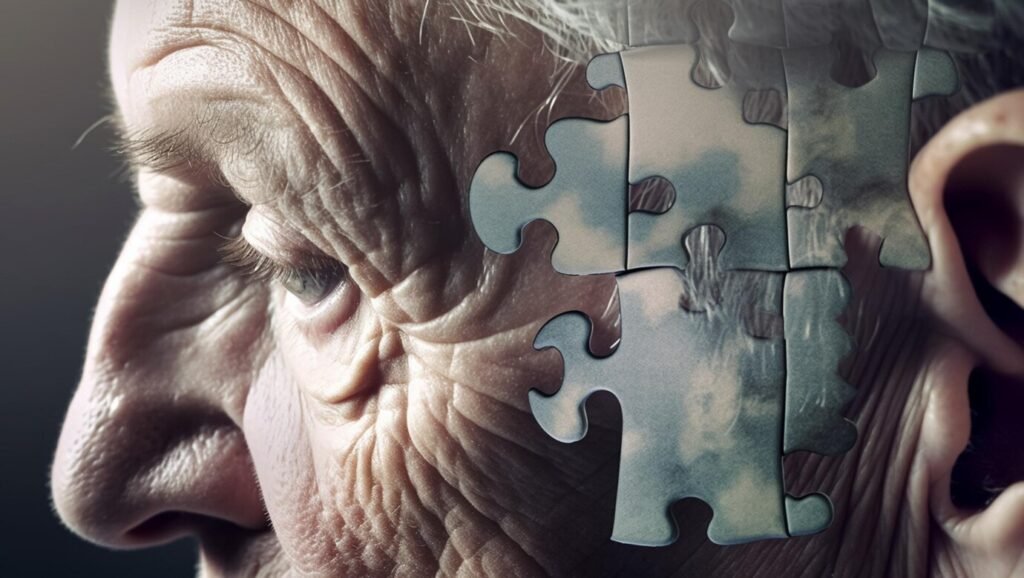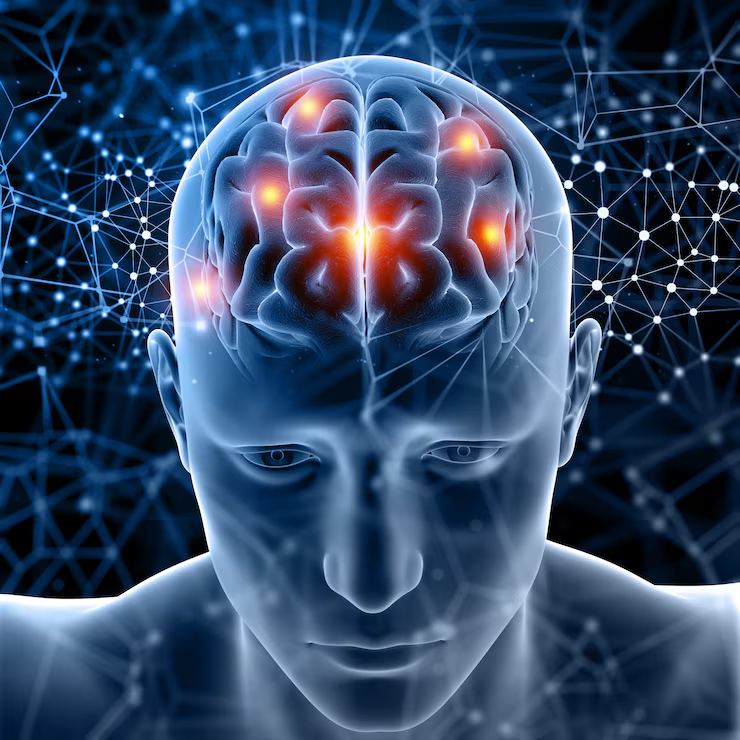“Dementia: Causes, Symptoms, Diagnosis, Treatment & Prevention Guide”

7 Essential Insights into Dementia Symptoms: Understanding Causes, Diagnosis, and Types
Dementia symptoms represent a decline in cognitive abilities severe enough to interfere with daily life. This broad term encompasses a range of disorders that impair memory, language, problem-solving, and other cognitive functions. Understanding these symptoms is crucial for timely diagnosis and effective management. This comprehensive guide covers everything you need to know about dementia symptoms, including their causes, types, diagnosis, and management strategies.
What Are Dementia Symptoms?
Dementia symptoms involve a progressive decline in cognitive functions that significantly impacts daily living. Unlike other conditions, dementia is not a single disease but an umbrella term for various disorders affecting the brain. Alzheimer’s disease is the most prevalent form, accounting for 60-80% of dementia cases. However, dementia can arise from other diseases, each with distinct symptoms and progression patterns.
Key Characteristics of Dementia Symptoms:
- Memory Loss: Difficulty remembering recent events or newly learned information is often one of the first signs.
- Language Problems: Struggling to find the right words or following conversations can indicate cognitive decline.
- Impaired Reasoning and Judgment: Challenges in problem-solving, planning, and organizing tasks.
- Disorientation: Confusion about time, place, or identity can be a significant symptom.
- Behavioral Changes: Shifts in personality, mood swings, and inappropriate behaviors may occur.
Causes of Dementia Symptoms
Dementia symptoms result from various underlying conditions that damage brain cells and impair their ability to communicate effectively. The causes of dementia are diverse and include:
- Alzheimer’s Disease: This is the most common cause of dementia, characterized by abnormal protein deposits in the brain, including amyloid plaques and tau tangles. These deposits disrupt communication between brain cells, leading to progressive memory loss and cognitive decline.
- Vascular Dementia: Caused by damage to the blood vessels in the brain, this type results from reduced blood flow, often due to strokes or other vascular conditions. The symptoms may vary depending on the location and extent of the brain damage but typically include problems with reasoning and decision-making.
- Lewy Body Dementia: This type involves the presence of abnormal protein deposits called Lewy bodies in the brain. These deposits affect cognitive functions and motor control, leading to symptoms such as visual hallucinations, fluctuating attention, and parkinsonism (tremors, stiffness, and slow movement).
- Frontotemporal Dementia: Characterized by degeneration of the frontal and temporal lobes of the brain, this type affects personality, behavior, and language. Symptoms can include drastic changes in social behavior, emotional instability, and difficulty with speech and language.
- Mixed Dementia: In some cases, individuals may experience symptoms of more than one type of dementia simultaneously, such as Alzheimer’s disease combined with vascular dementia. This can complicate diagnosis and treatment, as different types of dementia may require different management strategies.
- Other Causes: Conditions such as traumatic brain injury (TBI), Parkinson’s disease, and Huntington’s disease can also lead to dementia symptoms. Additionally, certain infections, metabolic disorders, and vitamin deficiencies may cause reversible dementia-like symptoms.
Early Symptoms and Diagnosis of Dementia
Identifying dementia symptoms early is crucial for effective management. Early symptoms can be subtle but typically include:
- Memory Loss: Difficulty remembering recent events or conversations, which may be noticed by family members or friends.
- Cognitive Impairment: Challenges in organizing tasks, planning, and solving problems. Individuals may struggle with tasks they previously handled with ease.
- Behavioral Changes: Changes in personality, mood swings, and inappropriate or unusual behaviors. These changes can be distressing for both the individual and their loved ones.
- Disorientation: Confusion about time, place, or identity. Individuals may get lost in familiar places or have difficulty recognizing friends and family.

Diagnosis of Dementia:
Diagnosing dementia involves a comprehensive evaluation, including:
- Medical History: A detailed review of the individual’s medical history, including any past illnesses, family history of dementia, and current symptoms.
- Physical Examination: A physical exam to rule out other conditions that may cause similar symptoms.
- Cognitive Testing: Assessments of memory, problem-solving, attention, and language skills to evaluate cognitive function.
- Neuroimaging: Brain scans such as MRI or CT scans can help identify structural changes or abnormalities in the brain associated with dementia.
- Laboratory Tests: Blood tests to check for underlying conditions, such as thyroid problems or vitamin deficiencies, that could contribute to cognitive decline.
While a definitive diagnosis of dementia can be challenging, early and accurate diagnosis is essential for effective treatment and management.
Types of Dementia and Their Characteristics
1. Alzheimer’s Disease:
- Symptoms: Progressive memory loss, difficulty with language, and impaired judgment. As the disease progresses, individuals may experience severe cognitive decline and loss of independence.
- Diagnosis: Confirmed through neuroimaging and assessment of characteristic brain changes, such as amyloid plaques and tau tangles.
2. Vascular Dementia:
- Symptoms: Problems with reasoning, planning, and organization. Symptoms often follow a stepwise progression, with sudden declines in cognitive function following strokes or other vascular events.
- Diagnosis: Identified through imaging techniques that reveal brain damage from strokes or other vascular issues.
3. Lewy Body Dementia:
- Symptoms: Fluctuating attention, visual hallucinations, and parkinsonism. Individuals may also experience rapid changes in alertness and mood.
- Diagnosis: Diagnosis is challenging and often involves ruling out other types of dementia and confirming the presence of Lewy bodies through brain imaging or autopsy.
4. Frontotemporal Dementia:
- Symptoms: Marked changes in behavior, personality, and language. Individuals may exhibit socially inappropriate behaviors, emotional blunting, and difficulty with speech.
- Diagnosis: Neuroimaging may show atrophy in the frontal and temporal lobes, which is characteristic of this type of dementia.
5. Mixed Dementia:
- Symptoms: Combination of symptoms from different types of dementia, such as Alzheimer’s disease and vascular dementia. This can result in a complex presentation with overlapping symptoms.
- Diagnosis: Requires a thorough evaluation to determine the presence of multiple types of dementia and their impact on cognitive function.
Conditions Mimicking Dementia Symptoms
Several conditions can cause symptoms similar to dementia but may be reversible with appropriate treatment:
- Depression: Depression can lead to significant cognitive impairment, often mistaken for dementia. Treatment of depression may alleviate cognitive symptoms.
- Thyroid Problems and Vitamin Deficiencies: Conditions such as hypothyroidism and deficiencies in vitamins B12, B6, and folate can cause dementia-like symptoms. Addressing these deficiencies can improve cognitive function.
- Medication Side Effects: Certain medications or interactions between medications can cause cognitive decline. Adjusting the medication regimen may resolve these symptoms.
- Subdural Hematomas: Bleeding between the brain’s surface and its covering, often due to falls, can cause dementia-like symptoms. Surgical intervention may be required to address this issue.
- Brain Tumors: Rarely, tumors in the brain can cause symptoms similar to dementia. Diagnosis and treatment depend on the tumor’s type and location.
When to Seek Professional Help
If you or a loved one exhibit persistent memory problems or other symptoms of dementia, seeking professional help is crucial. Early diagnosis and intervention can provide significant benefits, including:
- Improved Quality of Life: Early treatment and management can help maintain cognitive function and independence for a longer period.
- Access to Treatments and Clinical Trials: Early diagnosis allows individuals to benefit from available treatments and participate in clinical trials for emerging therapies.
- Planning for the Future: Early diagnosis provides time to plan for future care needs and make informed decisions about treatment and living arrangements.
Consultation with Healthcare Professionals:
- Primary Care Physicians: Initial evaluation and referral to specialists for further assessment.
- Neurologists: Specialists in brain and nervous system disorders who can provide a detailed evaluation and diagnosis.
- Geriatricians: Physicians specializing in the care of older adults, often involved in the management of dementia and related conditions.
- Psychiatrists: Professionals who can assess and manage behavioral and psychological symptoms associated with dementia.



